Over a thousand participants gathered in Tel Aviv on Wednesday for the second annual Digital.Health.Now conference focused on showcasing advanced Israeli innovations in telemedicine, digital healthcare, and general wellness aided by technology.
The event, held at the Expo Tel Aviv, included an exhibition and brought together over 60 healthcare organizations and 350 technology companies and startups from Israel and around the world, as well as a number of multinationals scouting for collaborations and opportunities including Microsoft, IBM, and Amazon Web Services (AWS).
SEE ALSO: 4 Israeli Companies Among 150 ‘Most Promising’ Global Digital Health Startups
“This year, once again, the conference has attracted the world’s biggest and most advanced startup and technology companies, all of them… focused on integrating innovation into the health care system as a means of addressing the challenges facing it,” said Yael Ophir, the executive director of HealthIL, a non-profit organization that tracks and works with the Israeli digital health innovation ecosystem and which organized the conference.
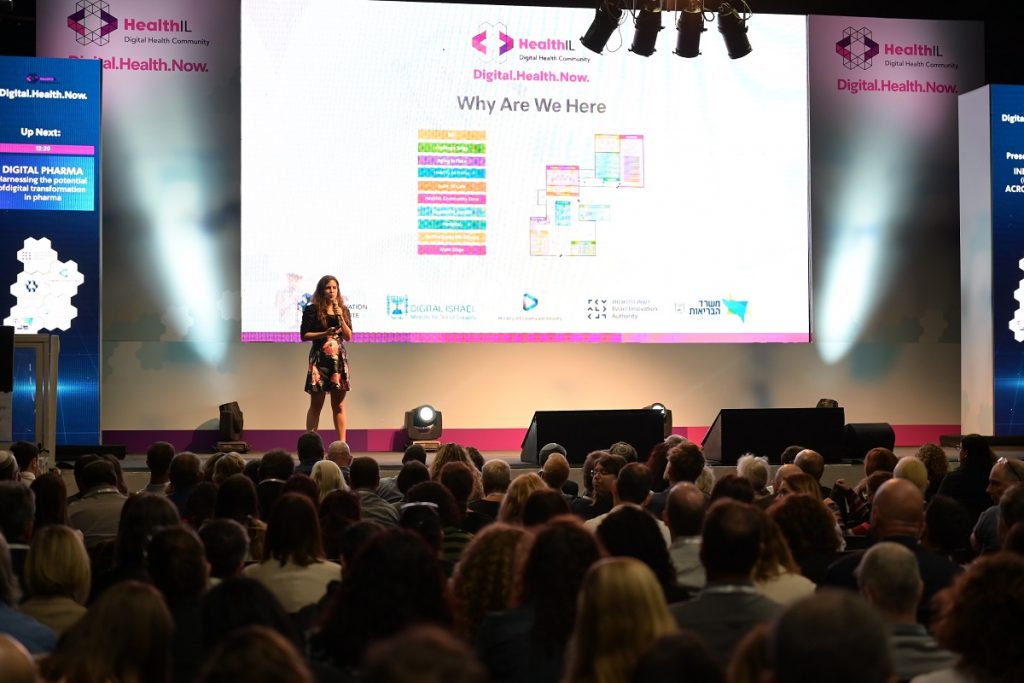
Meeting needs and addressing challenges was the key focus of the event, Yoav Fisher, head of Technological Innovation at HealthIL, tells NoCamels.
Speaking on the sidelines of the event, Fisher says the conference “approaches digital health from the perspective of what’s needed.”
“Whether it’s health organizations, corporate companies, pharma companies, they’re all looking for something. So we identified these needs and challenges and then we connect them to the relevant startups,” he explains.
Fisher says there are dozens of multinationals in the field of health life sciences sector operating in Israel, “and I think that really says something about the innovation here.”
“Health is a very complicated field. There is a lot of interest but the reality is much more complex. We act as a bridge for everyone – startups, investors, corporates – and we filter through the buzzwords to maximize opportunities,” he says.
A number of collaborations were touted at the event including Microsoft’s partnership with the Sheba Medical Center, ranked by Newsweek magazine as the 10th best hospital in the world, and its new ARC (Accelerate Redesign Collaborate) Innovation Center which aims to bring new digital health technologies into the hospital and community ecosystem. Microsoft is set to provide (Hebrew) the center’s tech infrastructure and provide cloud services which will allow for a virtual, secure lab and research database.
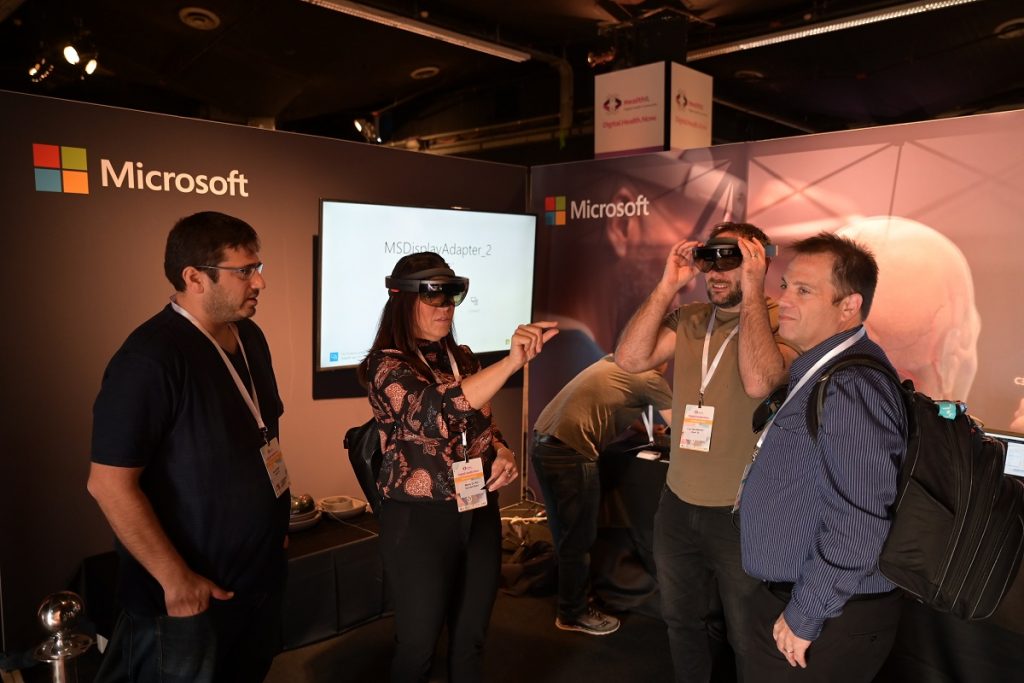
IBM and the Israeli Ministry of Health announced that they were working together on a pilot at several local hospitals on the use of IBM’s Watson supercomputer technology. And Garmin Health has partnered with the Israeli military and Israeli-founded startup Zone7, which leverages AI to predict injuries, “to foresee and prevent soldiers’ injuries during their military service due to physical load,” according to the conference organizers.
Eye-catching tech
Some 350 Israeli digital health startups and companies were part of the conference including Tyto Care, which developed the remote medical examination device TytoHome, recently named to TIME magazine’s list of “100 Best Inventions of 2019” alongside eight other Israeli innovations, and MobileODT, which developed digital cervical cancer screening solutions via mobile devices.
SEE ALSO: Saving Lives With AI: Israeli Femtech Firm Offers Cervical Cancer Screenings With Mobile Device
Over 40 startups were on the exhibition floor of the event displaying innovative technologies in the fields of pathology, aging, physician care, and remote medicine.
Augmentiqs, for example, an Israeli startup founded in 2016, showcased how it turns microscopes – an analog medical instrument – into an augmented reality device that allows for real-time, smart pathology.
Augmentiqs’s digital pathology platform integrates with standard microscopes, enabling live sharing and collaboration between pathologists and remote viewers, enhancing their capabilities and streamlining the pathology workflow.
Sign up for our free weekly newsletter
Subscribe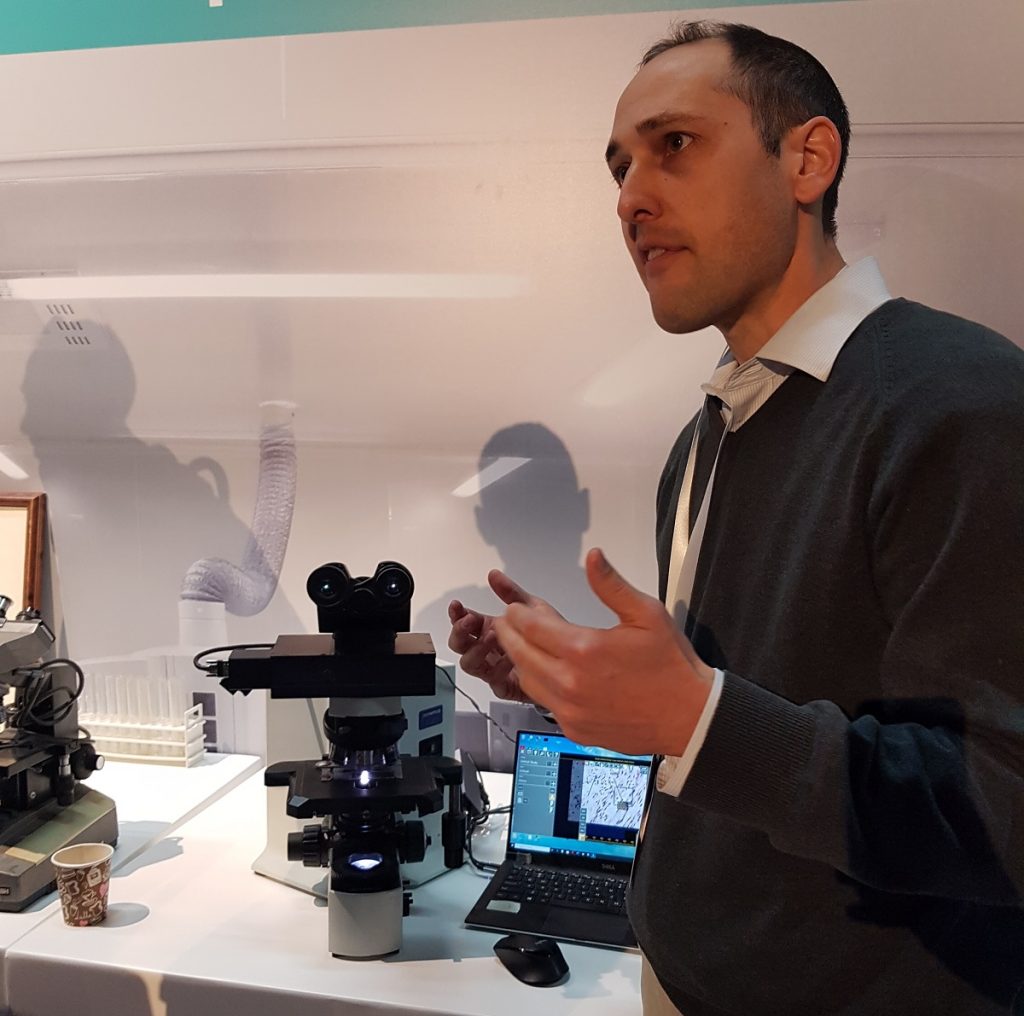
RightHear, a Raanana-based startup established in 2015, developed a navigation app for the blind and visually impaired that has mapped over 1,000 locations in Israel and the US. The app issues voice prompts and instructions such as “the door is in front of you, it is an automatic sliding door,” to guide people with visual impairments around a venue that is pre-installed with RightHear sensors.
“In a supermarket, for example, the app can navigate to the bakery section or the vegetable aisle. In a mall, it can take you to a particular store or area,” explains RightHear co-founder and CEO Idan Meir.
The app describes the surroundings, orienting the user, and can even call for assistance if necessary, says Meir.
It is also useful for people with disabilities such as dyslexia or agoraphobia, an anxiety disorder that can spark fear of unfamiliar places where one can feel trapped or unsafe, he says.
Speaking of anxiety, Israeli startup CalmiGo developed a smart, drug-free device that can reduce stress, anxiety and help with panic attacks by regulating breathing patterns and emitting calming scents. The idea was developed by Adi Wallach, who created CalmiGo after suffering from panic attacks herself over the years. Dr. Orna Levin, also Adi’s mother, serves as medical director.
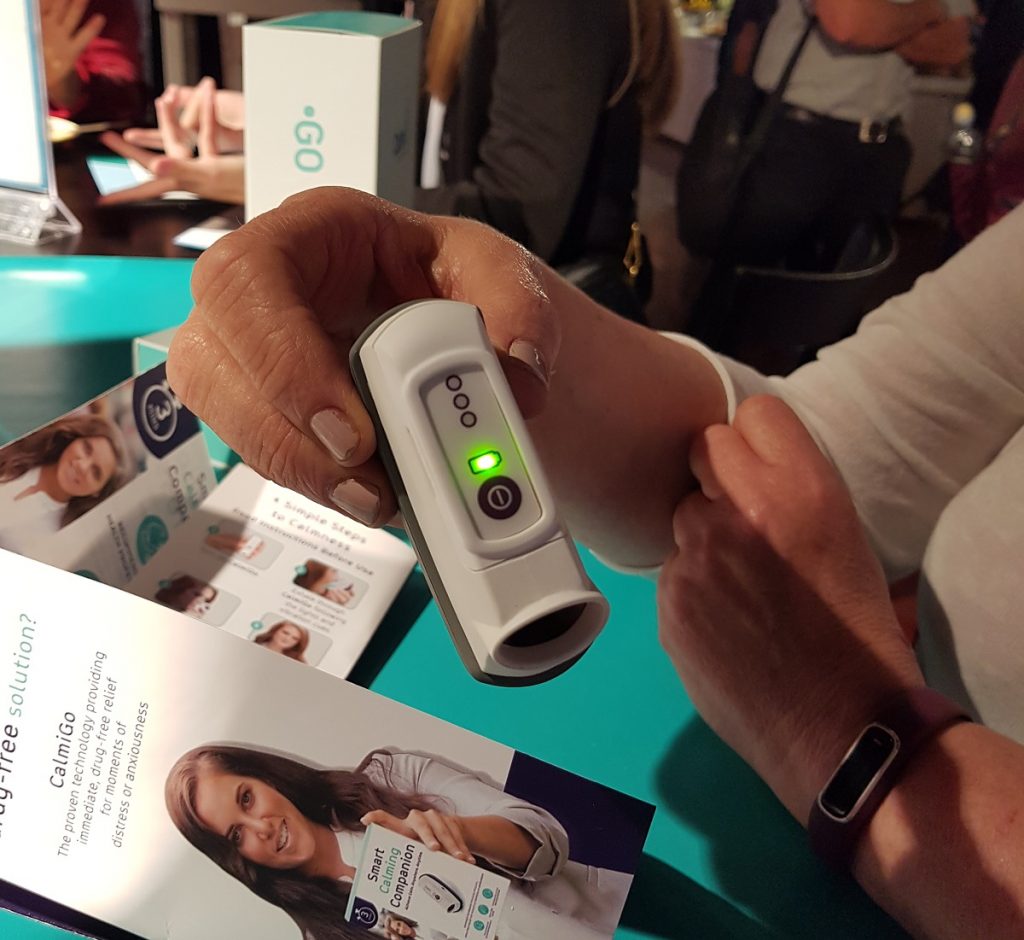
In the fields of physical therapy and elderly care, Israeli startup Selfit developed a unique robot designed to aid and facilitate the rehabilitation process of a variety of conditions digitally, at home or at the clinic. The robot can design personalized programs based on the different parameters and track progress, using an augmented reality-based system. The system can aid in slowing down the deterioration in cognitive functions, improve mobility and assist in other widespread neurological conditions common with the elderly population, Selfit claims.
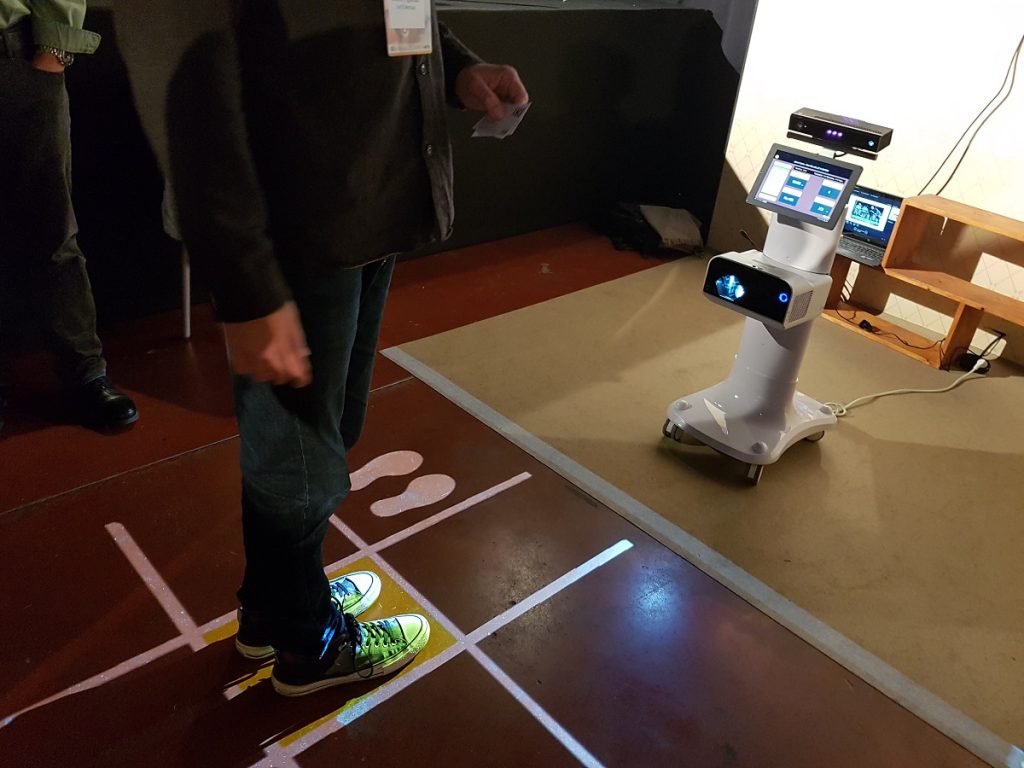
Another eye-catching initiative was Lifebridge Health Israel, a virtual hospital operating from Jerusalem as a sister company to Lifebridge Health, an American healthcare corporation based in Baltimore.
It was set up in 2018 by Dr. Jonathan Ringo, a general practitioner and president and COO of the Sinai Hospital of Baltimore.
“I was running the hospital, and I saw the challenges it was facing in throughput and waiting times,” he tells NoCamels. The virtual hospital addresses the shortage of healthcare workers in hospitals by providing services from nurses, doctors, social workers, physical therapists, and pharmacists remotely from Israel, he says.
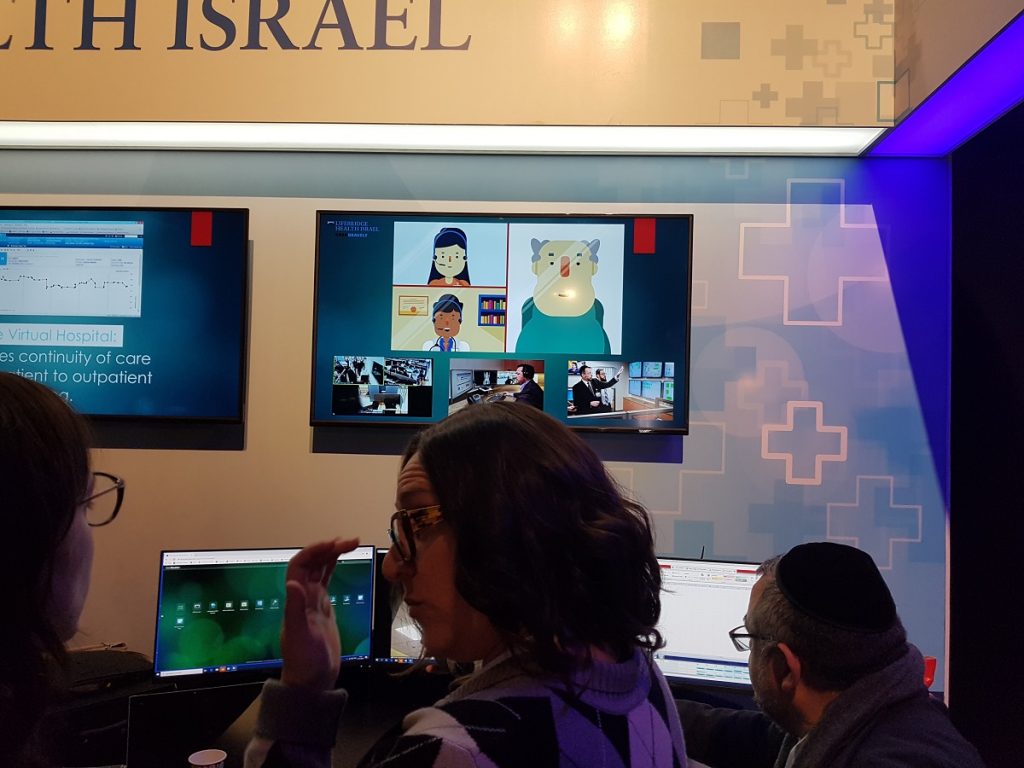
The multi-disciplinary medical teams can examine patients, look at lab work and review charts, manage prescriptions, and even provide after-discharge care through televideo and real-time data systems. These are especially useful on overnight shifts in the US – morning hours here in Israel – when local providers may be less available, explains Abo Sunoyov, a physician’s assistant with Lifebridge Health Israel.
“We have a fully staffed medical floor in Har Hahotzvim in Jerusalem and we do our work from there. We keep everything flowing,” Sunoyov tells NoCamels.
Yaffa Holland, a nurse with Lifebridge Health Israel, says the team works with emergency rooms as well as in-patient departments, issuing instructions for after-care and following up with patients once they’re home.
“To my knowledge, we are the first in the world to provide this range of services,” Dr. Ringo tells NoCamels.
Lifebridge Health Israel works solely with US-trained and US-licensed professionals. It currently employs over 50 healthcare workers, a majority of them new immigrants to Israel (olim).
Related posts

Editors’ & Readers’ Choice: 10 Favorite NoCamels Articles

Forward Facing: What Does The Future Hold For Israeli High-Tech?

Impact Innovation: Israeli Startups That Could Shape Our Future


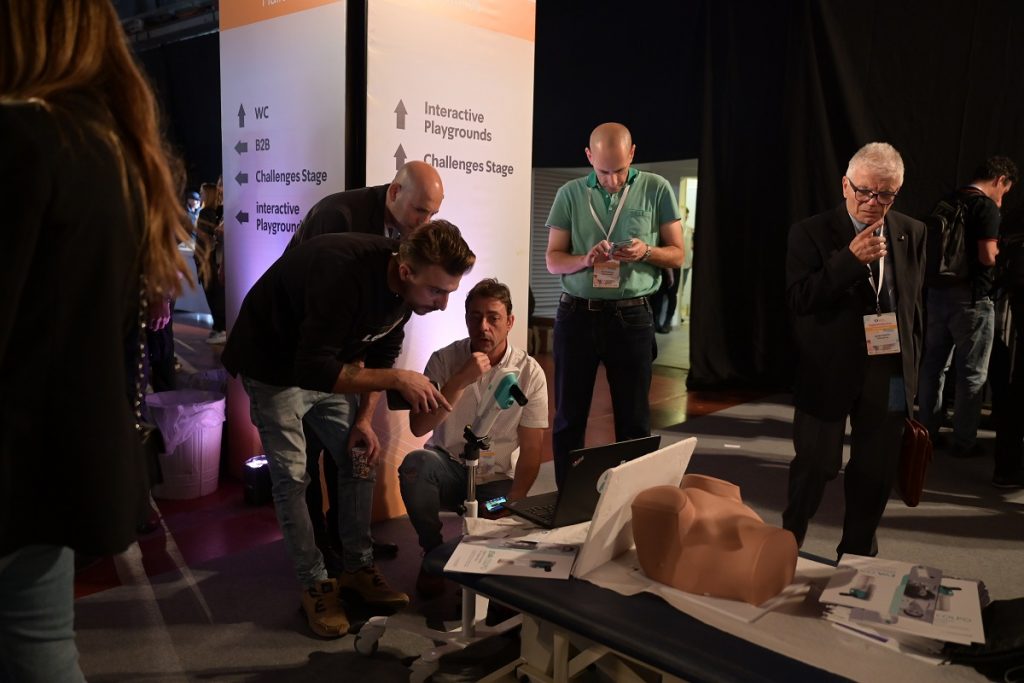

Facebook comments